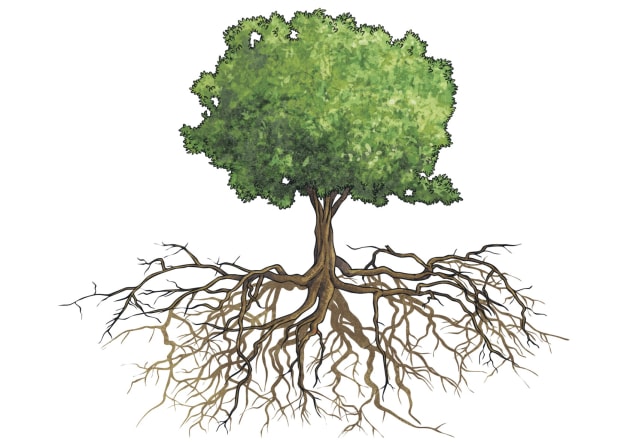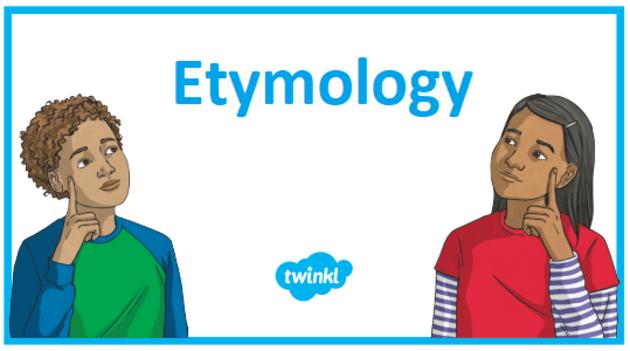


So what is etymology? Etymology is the study of words, including how they got their meanings and how words develop throughout history.
A good way to think of etymology is to use the image of tree roots. As language develops, all the individual roots of a word come together to form a sturdy foundation. The tree is the current form of a language, standing tall thanks to the roots that came before it.

In upper primary school and beyond, the etymology of English vocabulary is taught in relation to the Greek and Latin root words that we find in common use.
This can be a great way to teach children about the building blocks of language, such as prefixes and suffixes.
English is influenced by many hundreds of years of development. There is a whole area of study related to documenting the origins of words, and how English interacts with other languages.
The early stage of Modern English (the kind spoken by William Shakespeare in the 1500s), borrows heavily from Latin and Ancient Greek, as well as other nearby languages such as French, German and Dutch. This means that the English that we use today is a unique blend of many kinds of influences. It’s only when we look closely that we can see the roots.
For the purposes of this Wiki, we’ll be looking at common root words borrowed from Greek and Latin, as this provides a clear way of showing how our English vocabulary has been shaped throughout history.
For a more advanced look at the history of English, try this Lesson Pack series.

Perhaps the best way to look at etymology is to highlight words that are in common use today, underlining the meanings, roots and usage.
Before we go on, it should be noted that etymologies of words are often hard to pin down for certain. Academics frequently disagree about the origins of some words, and misinformation is rampant. As with many aspects of language, our understanding of etymology might change over time.
With that said, here are some relevant examples that you can share with your students:
|
Root Word |
Language |
Meaning |
Modern Examples |
|
Bio |
Greek |
Life |
Biology, Biography |
|
Phobos |
Greek |
Fear |
Claustrophobia, Arachnophobia |
|
Photo/Phos |
Greek |
Light |
Photography |
|
Demos |
Latin |
People |
Democracy, Demographic |
|
Bon |
Latin |
Good |
Bonus, Bonanza |
|
Aud |
Latin |
Hear |
Audio, Audience |
|
Mir |
Latin |
Amazement, wonder |
Mirage, Miraculous |
Understanding that words have root meanings is important, because it can allow us to expand and reinforce our vocabulary, by highlighting the smaller puzzle pieces that make our language.
Words with Greek or Latin roots often can’t be easily figured out just by using context clues, so understanding how to look up the root meaning of a word will give children more confidence when they come across a word like this in their reading.
Etymology is also a useful way to teach children how to recognise patterns within words, working on useful problem-solving and memory-based skills that are important when learning a language.
You might also like this lesson on how to use a dictionary. It’s another useful way to give children the tools to expand their vocabulary.
Looking to explore the origins of words with your students? There are many practical teaching materials that you can use to help plan an exciting lesson on this topic. The Twinkl teaching team have designed these resources as a handy way to save you time on planning, while ensuring that educators have access to high-quality teaching materials.
If you want to know more about the building blocks of language, watch the following video from Twinkl's YouTube channel. It's all about prefixes and suffixes, which often goes hand-in-hand with this topic.